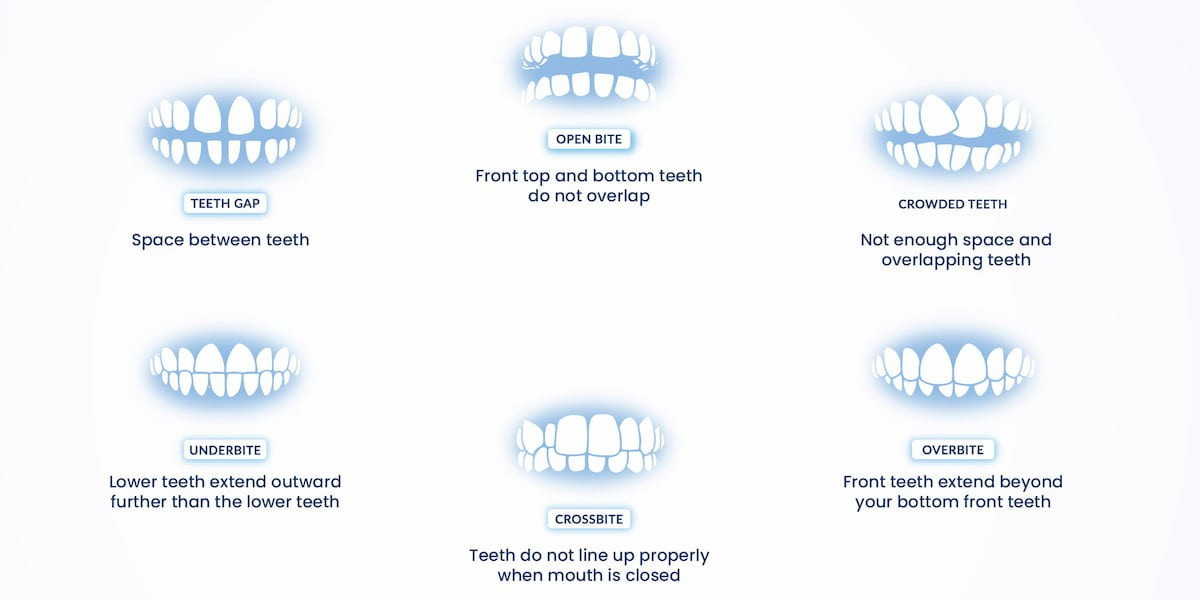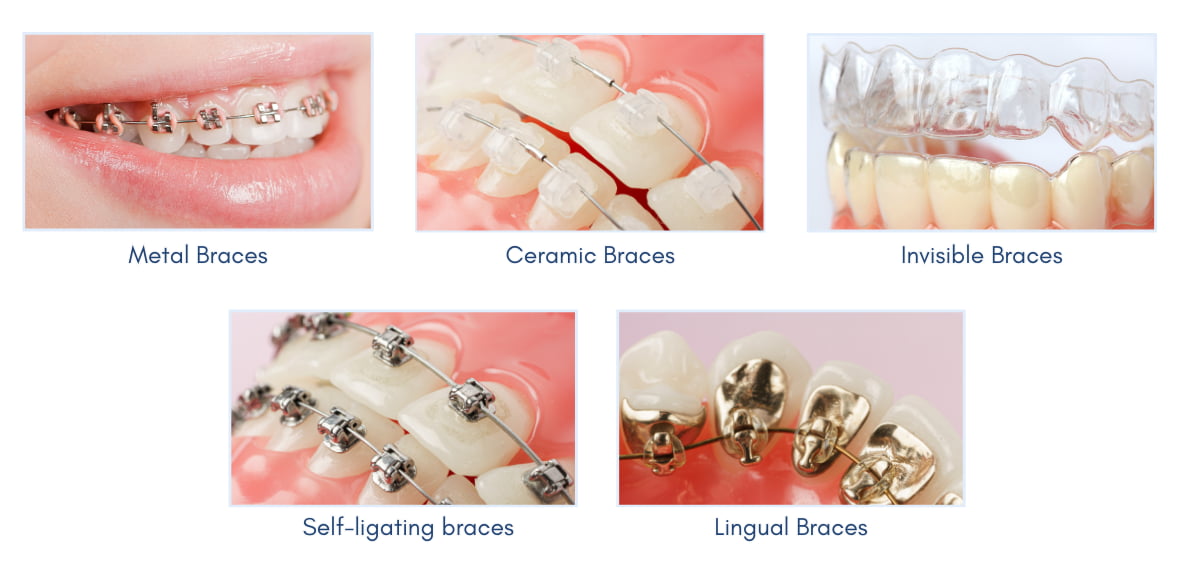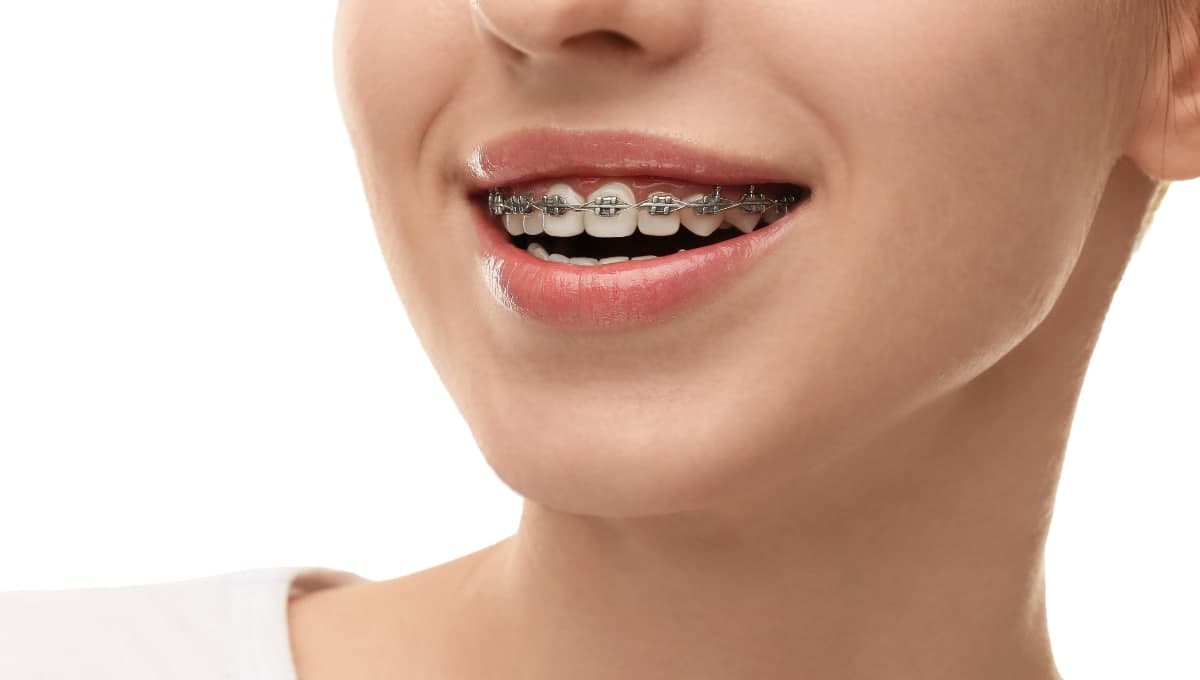TEETH - STRAIGHTENING TREATMENT
SERVICES
RESOURCES
SHOP
MEDICAL CERTIFICATIONS
Certifications ensuring safety, quality, and compliance with global standards.
Certifications ensuring safety, quality, and compliance with global standards.
Have you ever felt like your smile isn’t as comfortable or confident as it could be? Perhaps your teeth don’t line up properly, or your jaw feels sore after meals. These seemingly small signs could indicate a need for orthodontic care. Addressing these concerns early can make a big difference to your oral health, comfort, and overall confidence.
Your teeth and jaw can reveal a lot about whether orthodontic treatment could help. Keep an eye out for these key signs:

Here are some of the most common misalignment problems that could indicate a need for braces:
Open Bite: When the upper and lower teeth don’t meet properly, creating a noticeable gap even with your mouth closed. This can make biting into foods like apples or sandwiches tricky and may affect your speech.
Crowded Teeth: When there isn’t enough space in your jaw, teeth may overlap, twist, or become misaligned. Crowding can make cleaning difficult, increasing the risk of cavities and gum disease.
Overbite: Occurs when the upper teeth extend significantly over the lower teeth. Severe overbites can lead to jaw pain, uneven tooth wear, and sometimes speech issues.
Crossbite: When some upper teeth sit inside the lower teeth instead of outside. This can cause uneven wear, gum recession, and trouble chewing.
Underbite: When the lower teeth extend past the upper teeth, giving the jaw a more pronounced appearance. Underbites can affect both function and facial aesthetics.
Teeth Gaps (Diastema): Excess spaces between teeth may develop due to small teeth, missing teeth, or a mismatch between jaw and tooth size. Gaps can trap food particles, leading to gum irritation or infections.
If you notice any of these issues, consulting an orthodontist could help you achieve a healthier, more functional smile.

Sometimes, it’s not just about how your teeth look, how they function matters too. Other signs that you might need braces include:
Jaw Pain: Persistent discomfort, particularly when chewing or talking, can signal underlying alignment issues.
Chewing Difficulties: Struggling to bite or chew properly may indicate misaligned teeth.
Tongue Injuries: Frequent cuts or bites on your tongue could be caused by crowding or misalignment.
Speech Problems: Difficulty pronouncing certain words may be linked to teeth positioning or bite issues.
Teeth Grinding (Bruxism): Waking up with sore teeth or jaw can suggest stress on your bite that may need correction.
Mouth Breathing: Relying on mouth breathing, especially at night, could be linked to structural issues in your mouth or jaw.

If you’ve identified signs of misaligned teeth or jaw discomfort, there are a variety of treatment options to suit your needs and lifestyle.
Metal Braces: Traditional but highly effective, metal braces can correct complex alignment issues using durable brackets and wires.
Ceramic Braces: Work like metal braces but are tooth-coloured or clear, offering a more aesthetic option.
Clear Aligners (Invisible Braces): Removable, nearly invisible, and custom-made, clear aligners are discreet, convenient, and comfortable.
Self-Ligating Braces: Using a specialized clip system rather than elastic ties, they reduce friction and often shorten treatment times.
Lingual Braces: Hidden behind the teeth, lingual braces provide an invisible solution for a flawless smile.
Addressing orthodontic issues early comes with numerous advantages that go beyond aesthetics. From preventing dental problems to improving functionality, here are the key benefits of early treatment:
Recognising signs like misaligned teeth, jaw discomfort, or chewing difficulties early can help you address orthodontic issues before they worsen. There’s a solution for everyone with options ranging from traditional braces to discreet clear aligners.
If you’ve noticed the mentioned symptoms, consider getting a free consultation to achieve a healthy, confident smile and prevent long-term dental problems.
Get a free consultation with your orthodontist today to explore your options and take the first step towards achieving the smile of your dreams. Your journey to a confident smile starts now!
Traditional braces have long been the go-to option for orthodontic treatment. However, with advancements in dental technology, clear aligners have ...
4 January 2026
Wisdom tooth extraction is a common dental procedure, but it’s often surrounded by anxiety — especially when it comes to ...
22 December 2025
Retainers play an essential role in maintaining your smile after orthodontic treatment. Knowing how to clean retainers properly helps prevent ...
15 December 2025
If you’re dissatisfied with the appearance of your teeth, you’ve probably explored different solutions, from orthodontic treatments to cosmetic options ...
9 December 2025
Orthodontic treatment has evolved dramatically over the past decade, and patients now have access to a wide range of systems ...
2 December 2025

